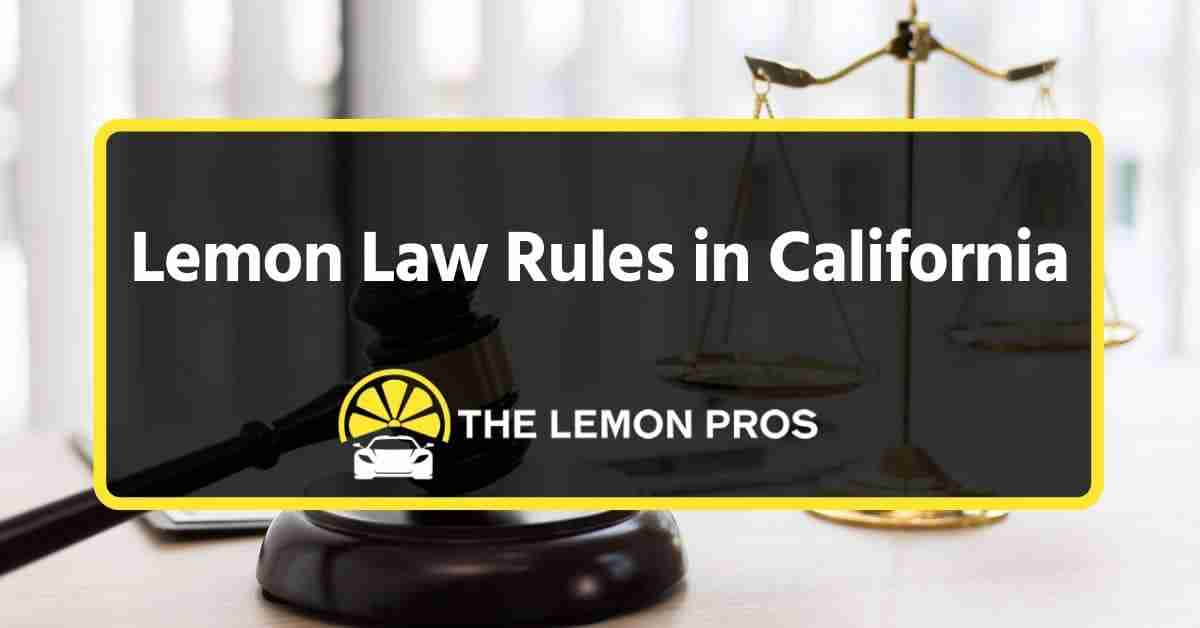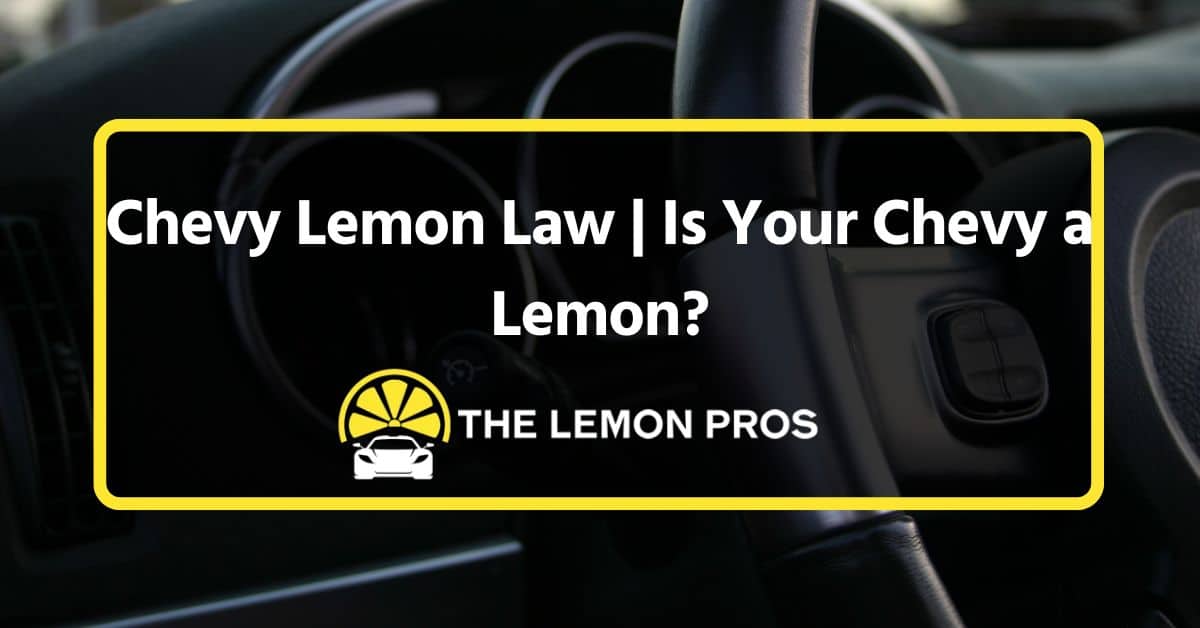
Chevy Lemon Law | Is Your Chevy a Lemon?
Chevy Lemon law protects consumers from defective vehicles that cannot be repaired. With a Chevrolet Lemon law claim, drivers have the option to get out of the defective vehicle with a buyback or replacement. To qualify for Lemon law compensation, the vehicle must have a significant defect that impairs the use, value or safety.
It’s essential to know your rights as a Chevy driver. If your vehicle qualifies, you want help from an experienced Lemon law attorney to file your claim.
The Lemon Pros have fought for owners of Chevrolet vehicles and have an exceptional success rate. With our practice area centered on lemons, we know how to get the manufacturer to pay up. Contact us today for your free initial consultation.
In this guide, we give you the steps for a valid Lemon law claim on your Chevy vehicle. We also explain what defects are covered and highlight the models that are eligible for compensation.
Table Of Contents
- What is the Chevrolet Lemon Law in California?
- Chevrolet Vehicles Most Affected by Lemon Law Issues
- Does Your Vehicle Qualify for the Chevrolet Lemon Law Claim?
- What to Do Next If Your Chevy is a Lemon
- What Is the Chevy Buyback Program?
- How to Get the Best Outcome for Your Lemon Law Case
- Need Legal Help with Your Chevy Lemon Law Case?
What is the Chevrolet Lemon Law in California?

Every state has its own set of requirements, but the Lemon law rules in California, also known as the Song-Beverly Consumer Warranty Act, specify that there must a significant defect affecting the use, value or safety of the vehicle. New vehicles must have the defect start within 18,000 miles or 18 months, while used cars are subject to the warranty period. Additionally, there must be a minimum of four repair attempts for any non-safety-related defect, while safety complaints only require two attempts.
Consumer protection laws vary among other states, with many not providing as comprehensive of protection as California. For example, there are some states that offer no protection for used vehicles, so it’s critical to consult with a professional in your area.
In all cases, there is some federal protection as a backup. The Magnuson-Moss Warranty Act is the federal law that is always available if a case needs to be filed.
Chevrolet Vehicles Most Affected by Lemon Law Issues
Lemon law cases are filed for a variety of Chevy vehicles, some gaining more notoriety than others. For example, more than 300,000 Chevrolet Silverado HD and GMC Sierra HD pickups were recalled because the tailgate would open on its own, posing serious risks to drivers. Just before that, more than 400,000 vehicles, including the Chevrolet Suburban and Chevrolet Tahoe, were recalled because the rear wheels would lock up.
Even the smaller SUVS, such as the Chevrolet Equinox and Chevrolet Traverse have been subject to issues, especially with the powertrain. From the car standpoint, the Chevrolet Malibu, Chevrolet Cruze and Chevrolet Impala faced structural defects, while the Chevrolet Bolt EV posed a serious fire risk because of malfunctions.
Some of the most common defects reported with Chevrolet models include engine problems, such as stalling, overheating or excessive oil consumption. There have also been transmission complaints with cars jerking, slipping gears or suffering from shifting delays. From an electrical system standpoint, the Chevy may have a faulty infotainment system, parasitic battery drain or dashboard glitches. There are also reports of braking issues, steering malfunctions, fuel system failures and structural or safety concerns.
Does Your Vehicle Qualify for the Chevrolet Lemon Law Claim?
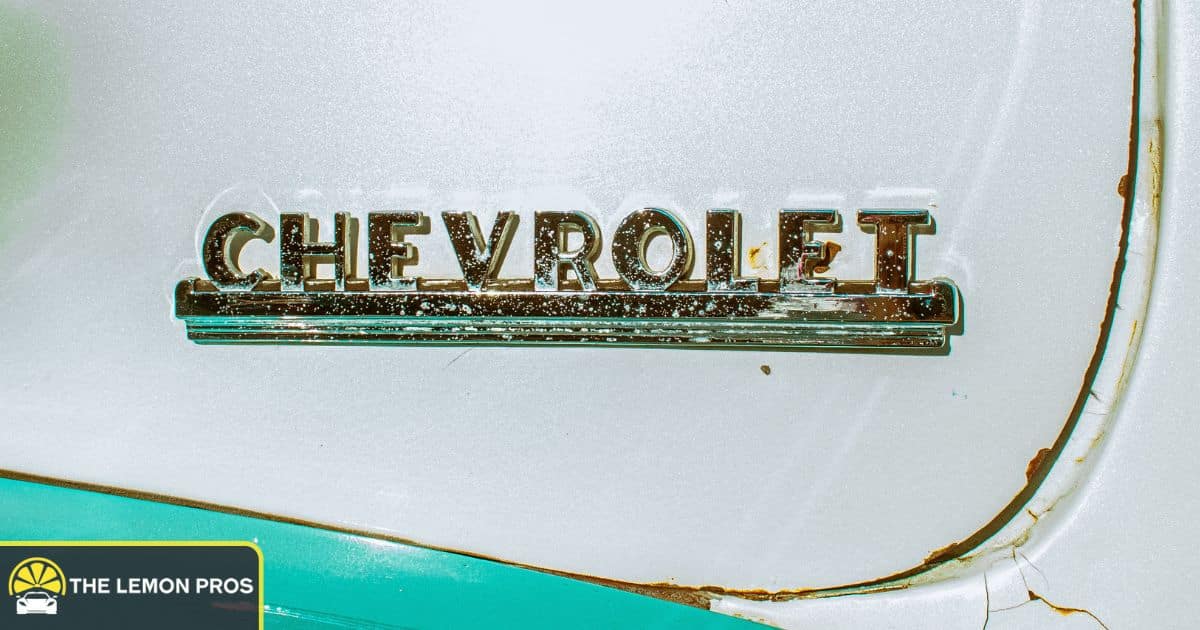
How does a car qualify for Lemon law in California? Lemon vehicles meet the following criteria.
Type: Lemon laws require the vehicle to be new with a manufacturer’s warranty (emissions warranties, bumper-to-bumper, powertrain, etc.) There are some exceptions for a Certified Pre-Owned Chevy or used model.
Issue Severity: Any qualifying defect must impair the safety, use or value of the vehicle.
Time/Mileage: The defect must first appear within 18,000 miles or 18 months of taking ownership of the vehicle.
Number of Repair Attempts: There must be a reasonable number of repair attempts made to fix the same defects. For example, with serious safety issues the multiple repair attempts must be a minimum of two, while all others require four.
Days out of Service: On top of the repair attempts, the car is eligible if it’s been out of service for more than thirty days per defect. These days do not need to be consecutive.
As a Chevrolet owner, it’s always best to consult with an experienced lawyer to determine if your vehicle meets the certain criteria required.
Can I File a Claim if I Bought a Used Chevy?
In California, there is a Lemon law for used cars. To be eligible, it must meet the following requirements:
- Certified Pre-Owned (CPO) Chevy that’s still covered by the original factory warranty
- Extended warranty or dealer warranty must be valid
During your free consultation, the attorney will verify that the defect was present before the car was purchased and it wasn’t disclosed to you. The car also needs to have undergone the same amount of failed repair attempts for the significant defects as a new model, so you will need proof of that.
What to Do Next If Your Chevy is a Lemon
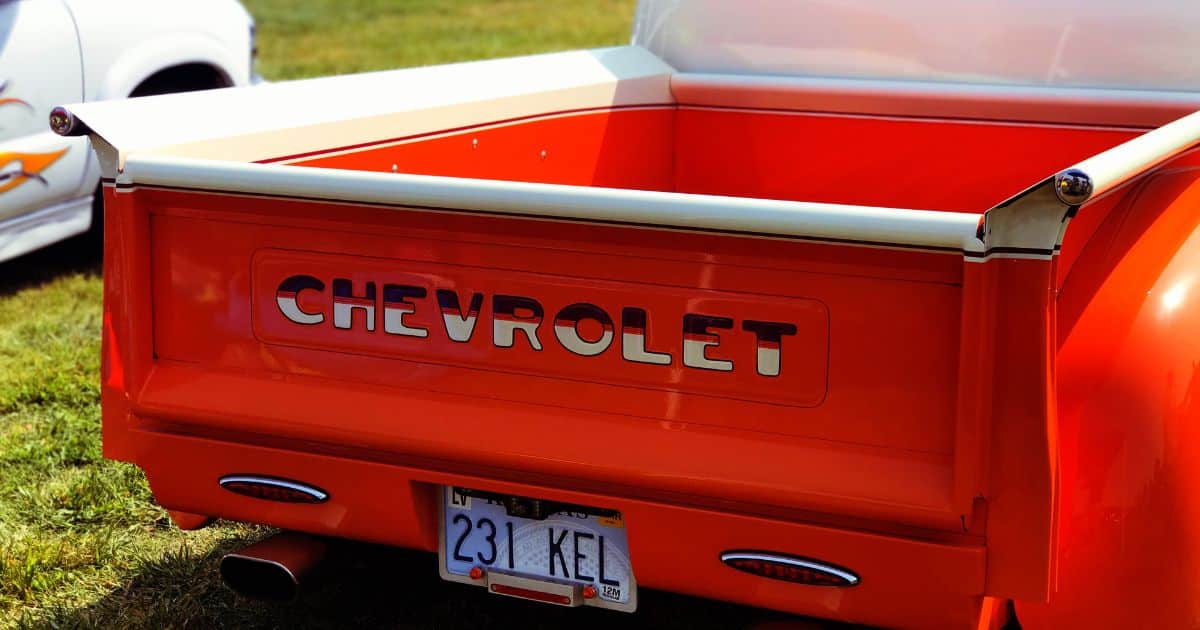
Do you know what to do if your Chevy is a lemon? A small mistake can cost you money or can lead to your claim being denied. For that reason, we advise following these steps.
Identify the Problem and Document Everything
As the claimant, you have the responsibility to prove your case beyond a shadow of a doubt. To do so, it helps to have all the records from the repair shop, indicating all of the attempted fixes and communication. You should write the date and resolution of each visit.
It also helps to document the defects and detail how they affect your ownership. Take photos or videos of the complaint if it can be documented better this way.
Check Your Warranty & Chevy Lemon Law Eligibility
Because the new vehicle must be covered under the manufacturer’s warranty to be eligible, you want to verify the terms. Review the warranty to confirm that you are still within the timeframe and that the defect is a covered component.
You also want to research the state’s lemon law requirements to be sure your vehicle is eligible. A qualified Lemon law attorney can help you determine if your case qualifies.
Give the Dealership a Chance to Fix the Issue
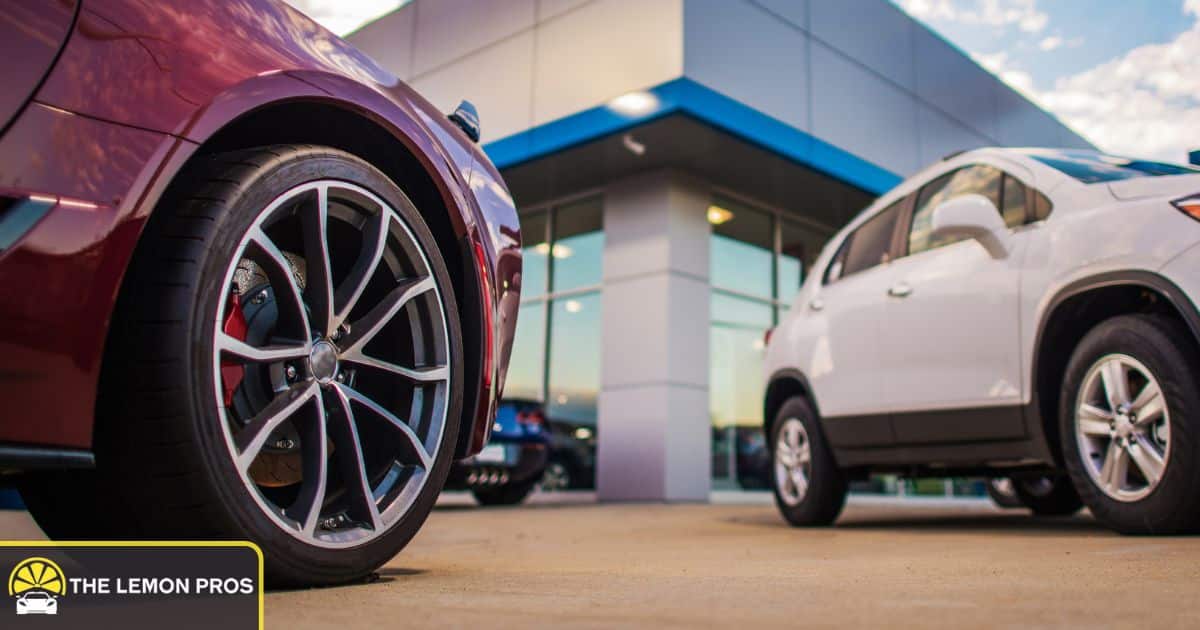
You must give the dealership a reasonable opportunity to fix the problem. Schedule your repair appointments with a dealership that is authorized to work on the American brand. Make sure that your car has been out of service for a minimum of thirty days or has been in for the minimum amount of repair attempts before filing a claim. Keep all these detailed records for the attorney to review.
If the dealership refuses to continue with attempts, you will need to seek the help of a lawyer with a proven track record of going up against General Motors. Make sure you have the refusal in writing either through email or written correspondence as proof.
Notify Chevrolet and File a Formal Complaint
Once your car qualifies, you need to notify Chevrolet’s customer service center to report your next steps. For starters, you can call 1-800-222-1020. After that notification, you want to submit a formal complaint in writing to the manufacturer. Make sure you send the notification by certified mail so there’s proof of delivery. Keep copies of all the correspondence for your records.
Consider Hiring a Lemon Law Attorney
At any point in the buyback process, you could hire a lawyer to help with the case, but it’s usually best to consult a professional at the beginning. Attorneys can help file the case for you, negotiate the terms and finalize the compensation.
Many lawyers won’t charge any fees until you receive your cash settlement, ensuring you don’t have to put any money out of pocket upfront. Contact us for a free case evaluation today to see what you may be owed.
What Is the Chevy Buyback Program?
The Chevy Lemon law buyback program allows the manufacturer to repurchase the defective vehicle back from you. It applies to any vehicle that’s covered by Lemon law. With the Lemon law buyback, you will be required to give the vehicle back to the manufacturer in exchange for an agreed-upon payout, based on the fair market value minus the usage you received.
There’s also the option to get a replacement vehicle that is similar to the one you are currently driving. It will have a similar purchase price but will be a reliable vehicle that’s free of defects. Because it is Chevy’s company policy to handle most of the cases through arbitration, you will have the chance to state your preference.
How to Get the Best Outcome for Your Lemon Law Case

With all of our success stories of earning customers huge payouts, we have a few tips that will maximize your chances of winning.
Document everything. As soon as you realize that there’s a problem, you want to start documenting everything needed for evidence. Some of the necessary documentation may include the repair orders indicating the number of repair attempts, warranty paperwork (which is a binding agreement) and purchase invoice from the dealer.
Request the dealer’s internal notes. Service advisors keep notes about each vehicle, beyond what you see on the repair invoice. You can ask for these detailed notes that may strengthen your case, especially if they remark that they are “unable to duplicate” the issues.
Test drive with the service technician. If the dealer is unable to replicate the problem, request a test drive with the technician. If they refuse, document your efforts on the repair invoice.
Send all correspondence by certified mail. You want proof that you did everything possible to fix the issue. A fair amount of lemon law cases fail because there’s no proof that the customer notified the manufacturer and dealer of the issues. For this reason, everything should be sent through certified mail.
Above all, you want an experienced lemon law attorney fighting your case. To get a refund or replacement, it’s best to let the professionals handle the correspondence and claim.
Need Legal Help with Your Chevy Lemon Law Case?
Dealing with a defective Chevy vehicle is never a pleasant experience, but working with a qualified lawyer can make the claim a lot easier. It’s vital that you take action as soon as you realize there’s a problem if you want to get out of your lemon.
The Lemon Pros are ready to take on your case and fight for your rights. As the best Lemon law attorney in the region, we know what it takes to go against Chevy and win. Get your free case evaluation today to start the Lemon law claim process.

